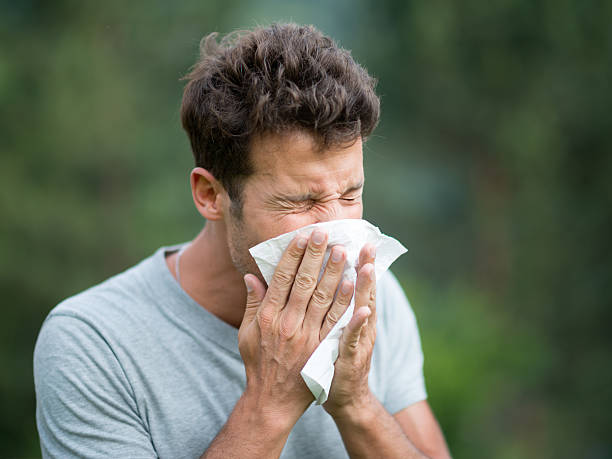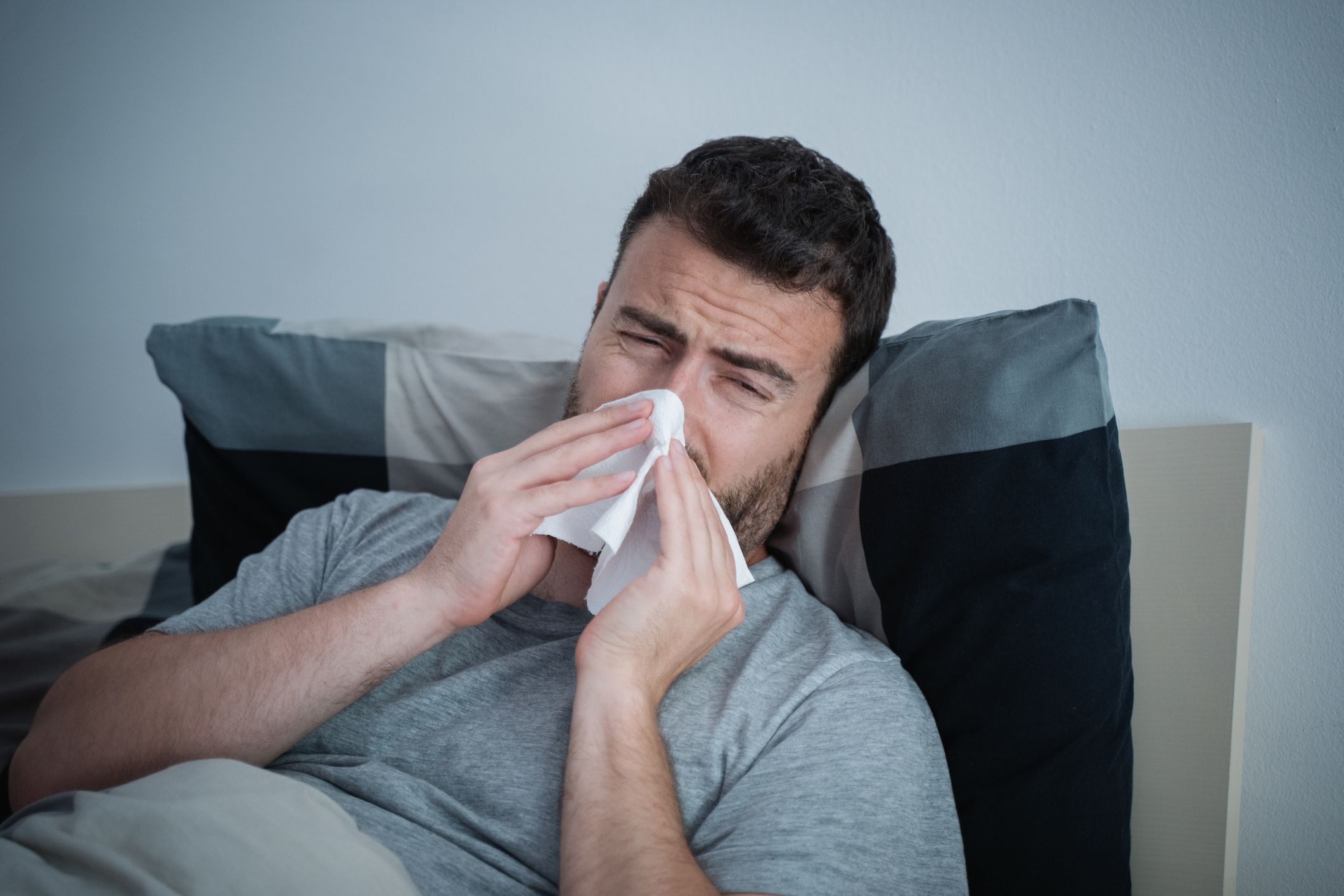
The Hidden Risk of Holding in a Sneeze
Sneezing is a reflex most people barely think about, but the way you handle it can matter more than you realize. Many people pinch their nose or clamp their mouth shut to hold back a sneeze, often to be polite in public or to avoid spreading germs. While it may seem harmless, research and case studies show that trapping a sneeze inside can create a sudden burst of internal pressure that affects delicate structures in the head and neck (Wormald and Athanasiadis 2005).
This built-up force does not disappear. Instead, it redirects into the sinuses, ears, or even blood vessels. In rare but documented cases, suppressed sneezes have led to ruptured eardrums, sinus injuries, and vascular complications (Kumar et al. 2018). Sneezing is not just an inconvenience but a protective reflex designed to clear irritants and maintain balance in the respiratory system.
Why Sneezing Naturally Protects the Body
Sneezing is triggered when the nasal passages detect irritants such as dust, pollen, or microbes. It is the body’s way of ejecting these particles at high speed to keep them from reaching the lungs. Allowing the reflex to complete provides several important benefits:
- Pressure Release: A sneeze can move air at speeds exceeding 90 miles per hour, rapidly equalizing pressure in the nasal passages and middle ear. Preventing this release can stress fragile tissues such as the eardrum (Wormald and Athanasiadis 2005).
- Debris Removal: Sneezes carry out trapped particles, microbes, and allergens, acting as a first line of defense for the respiratory system (Eccles 2020).
- Immune Defense: Expelling irritants reduces the load on the immune system, which otherwise would need to fight off what enters deeper into the airways.
- Head Safety: Redirected force from a stifled sneeze can travel into the sinuses or blood vessels, occasionally leading to small tears or hemorrhages (Kumar et al. 2018).
Together, these functions show that sneezing is not a minor annoyance but a critical reflex that protects both respiratory and vascular health.

What Can Happen if You Hold in a Sneeze
- Ear Damage: Suppressing a sneeze can sharply increase pressure in the middle ear, sometimes causing a ruptured eardrum.
- Sinus Injuries: Redirected force may lead to small tears in sinus tissues, resulting in nosebleeds or discomfort.
- Throat and Vessel Strain: There are rare reports of throat ruptures and weakened blood vessels being injured after strong suppression of sneezes (Kumar et al. 2018).
- Increased Discomfort: Instead of relief, holding in a sneeze often leaves lingering irritation, as the irritant remains in the nasal passages.
How to Handle Sneezing Safely
- Let It Out: Allow sneezes to happen naturally, but cover your mouth and nose with a tissue or your elbow to reduce the spread of germs.
- Maintain Clean Air: Reduce triggers by keeping indoor air clean with ventilation or filters, lowering the frequency of sneezing episodes.
- Support Your Immune System: If allergies or colds make sneezing frequent, treat the underlying cause instead of suppressing the reflex.
- Be Mindful in Public: Sneezing is a normal reflex. Managing it hygienically is safer than blocking it altogether.
The Takeaway
Sneezing is more than a sudden burst of air. It is an essential reflex that protects the respiratory system, maintains healthy pressure balance, and helps the immune system by ejecting irritants. Suppressing a sneeze may seem harmless, but the risks include damage to the ears, sinuses, and even blood vessels.
Allowing sneezes to happen, while practicing good hygiene, is a simple way to protect both yourself and those around you. Far from being a reflex to hide, sneezing is one of the body’s most effective tools for defense and balance.
References
Eccles R (2020) ‘The mystery of the sneeze reflex: its evolution and clinical significance’, Rhinology, 58(6):443–449. https://doi.org/10.4193/Rhin20.292
Kumar S, Saha S, Sarin N et al. (2018) ‘Throat rupture caused by suppressed sneezing’, BMJ Case Reports, 2018:bcr-2018-224417. https://doi.org/10.1136/bcr-2018-224417
Wormald PJ and Athanasiadis T (2005) ‘Ear barotrauma following self-inflicted sneezing suppression’, The Journal of Laryngology and Otology, 119(2):146–147. https://doi.org/10.1258/0022215053122856



















